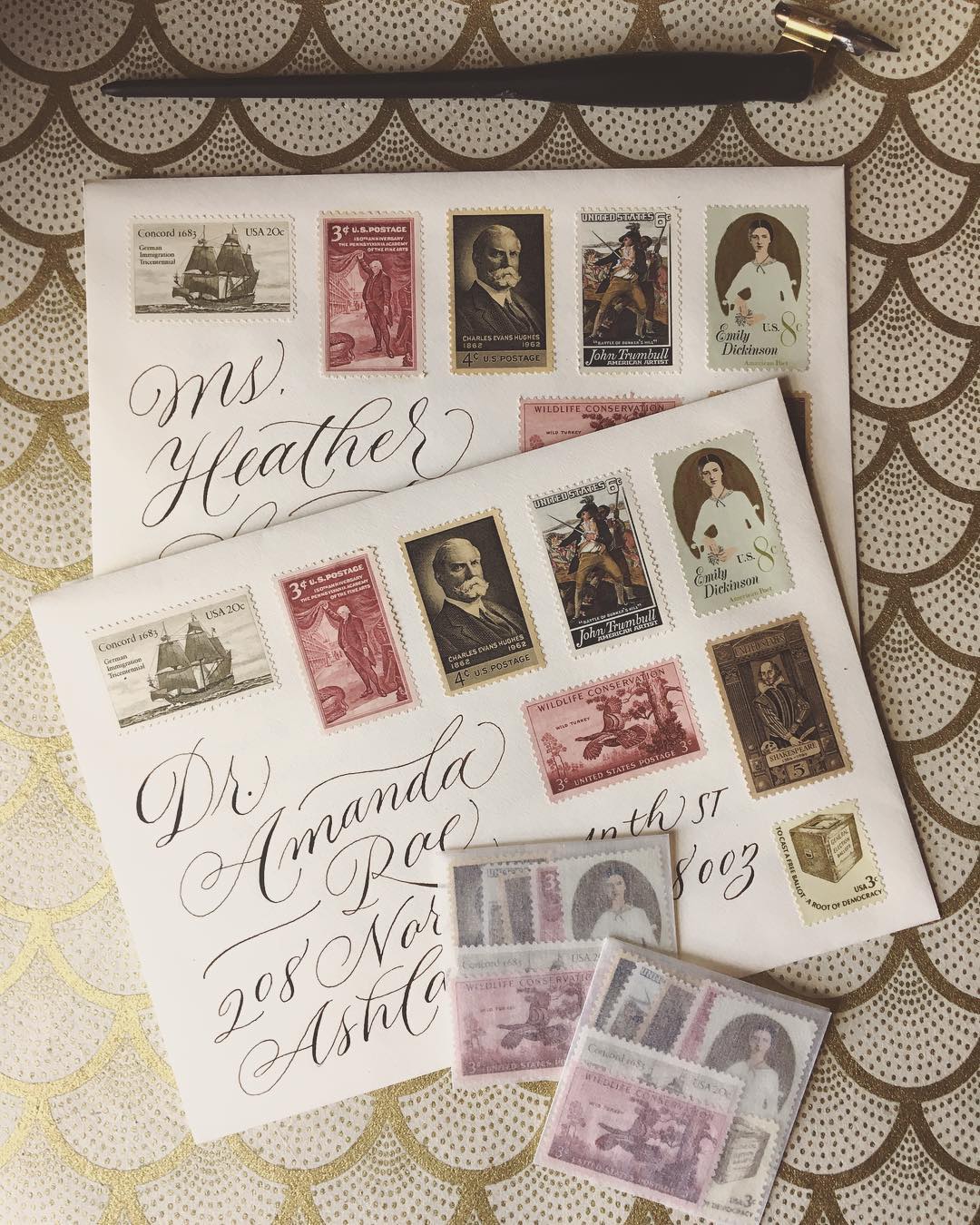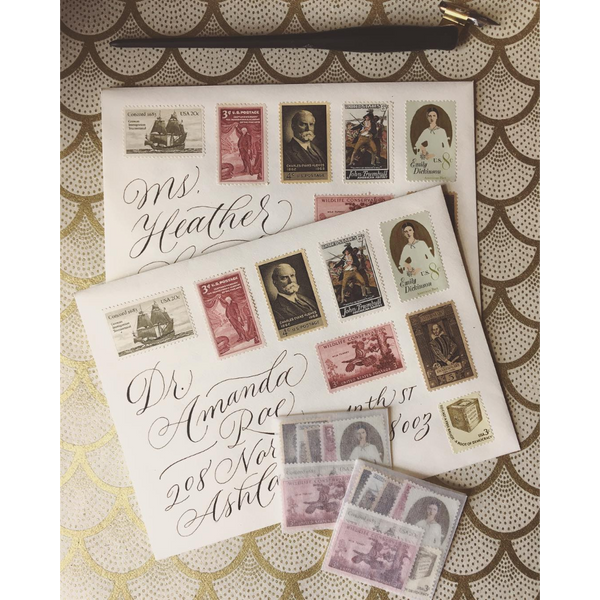April in Letters and Poetry
4th Apr 2019

April is a particularly special month for two reasons: 1) it’s National Poetry Month, which encourages us to celebrate and share poetry, and 2) it’s National Letter Writing Month, which invites us to appreciate the handwritten word and put our idiosyncratic, heartfelt notes in the mail as frequently as we can manage. Both of these aims are (predictably) near and dear to my heart.
And how fortuitous that they share a month because they are legitimately a marriage made in heaven: why not share a poem by sending it to a friend with a handwritten note? Done and done. Sending poems in the mail to friends and family is an activity I regularly undertake and frankly one I consider to be part of my life’s work. Sometimes people look a little puzzled when I tell them this. There’s a palpable, unspoken “why?” that descends upon the air. Wouldn’t I rather print greeting cards? Or do elaborate wedding invitations? Or create other products? I get it. The average person is not curling up with books of poetry at night. When I was teaching college freshmen and sophomores, the introduction of the poetry unit elicited an audible groan. And poetry is decidedly not where the money is. But to me, poetry is a genre uniquely suited to keeping us humble and grateful and awake and compassionate — all qualities that our society could stand to have in larger supply.
While this is not quite as romantic as a letter in the mail, can I share a poem with you? It’s a big year for literature in that 2019 marks the first time new material has entered the public domain in over twenty years. That’s exciting for printers like me because seeking copyright permissions, especially when a poet is deceased, can be a convoluted and labyrinthine process. So I was excited come January to check out the works of poetry that are freshly available for use. Edna St. Vincent Millay’s The Harp-Weaver and Other Poems is one of the collections now useable, and this poem — Sonnet XI from Part Five of the book — struck me so forcefully when I read it that it has rattled around in my brain since:
It came into her mind, seeing how the snow
Was gone, and the brown grass exposed again,
And clothes-pins, and an apron—long ago,
In some white storm that sifted through the pane
And sent her forth reluctantly at last
To gather in, before the line gave way,
Garments, board-stiff, that galloped on that blast
Clashing like angel armies in a fray,
An apron long ago in such a night
Blown down and buried in the deepening drift,
To lie till April thawed it back to sight,
Forgotten, quaint and novel as a gift—
It struck her, as she pulled and pried and tore,
That here was spring, and the whole year to be lived
through once more.
Not the happiest poem, clearly. But an honest one, and metaphorically brilliant, too. The image of garments “board-stiff” from the cold “[c]lashing like angel armies in a fray” is just so startlingly good, and the echo of the common phrase “bored-stiff” in that description is a telling window into the speaker’s life. That scene is vivid and violent, set in a brutal and windy storm, and yet a routine enough occurrence that it gets described as “some white storm” and “such a night.” Regardless of the conditions, it’s a fray the speaker, too, has to enter in order to save what she can, which, as we know, does not include the apron, and it consequently gets buried and forgotten until it reemerges in the burgeoning spring. It would be enough, to convey the facts, to say that the speaker “pried” at the apron, but one of the ways in which poetry works so effectively to establish a mood is through the poet’s careful and precise choice of language. What does it mean that she didn’t just pry but “pulled and pried and tore”? We get the sense that she is up against something immoveable, her actions futile and ineffective. She is not getting anywhere with this apron — or, we can hazard to guess, with her life. Which is reinforced by the last line of the poem: “[t]hat here was… the whole year to be lived / through once more.” She’s not even a subject of the final clause because, really, she’s not the agent of her own life. It’s a bleak poem, more at home in the winter scene depicted than in the spring setting around her, and it leaves the reader without much of anything at the end but emptiness.
Look, I don’t go around trying to depress myself with poems, but I find reading a perspective like the one shared in this poem keeps me awake to the wide range of human experience happening all around us all the time. We all have our hardships that we pull and pry and tear at — our metaphorical aprons frozen in the snow.
If you made it this far, I should send you a medal! Instead, I’m going to offer a challenge (ha!): this month, find a poem that you fall in love with. Send it to a friend along with a handwritten note. And then come back and tell us what you chose and why. I’ll do it, too, and report back. Deal?

